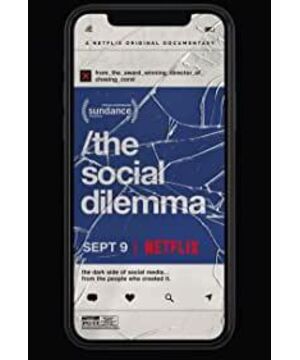Social media, on the one hand, is the convenience and connection brought about by technological iterations, and on the other side is the emotional management, attention and self-control of modern people's collapse. When we leave this phone, who are we.
1. Addiction
As social animals longing for collective belonging, social genes are sealed in our blood. Social media, as a new technological iteration of communication tech, has squeezed human's personal space more than printing/radio/telephone/email. In addition, the information conveyed by different media and the attraction of human attention are completely unequal. The text emphasizes logic, strips away the emotional and audio-visual elements, and is destined to be unable to compete with interactive/video content in terms of attention. What’s more worrying is that our generation’s ability to read/be alone/emotion management will become weaker and weaker as the medium changes, and we are increasingly dependent on social networks.
Therefore, social media mostly presents content in short text + audiovisual media. We can't help but be attracted to it, and form positive feedback and other psychological cues in constant stimulation, thus becoming addicted.
Addiction is what Internet companies are pursuing because it meets the company’s three major requirements: growth, engagement, and advertisement. The ingenious algorithm completely outpowers the same human psychology for thousands of years, addiction to screen is a deprivation of attention.
2. Depression
In almost all communication courses, when talking about the simplest research method, the relationship between social media usage time and user's well-being is always used as an example. Countless journal articles have tried to explore the correlation or even causation between the two, but the final recognized result is similar to our initial intuition-technology has no good and evil, but it induces good and evil. The right amount of social media can help people improve well-being, but an excessive amount will reduce well-being (Goldilocks Theory). But the right to choose does not seem to be in our hands. Just like drugs too much or not used seems to be the only choice, and our willpower and concentration are declining. Addiction drive to impression management makes us constantly try to reach out, but those extremely short-lived social recognition signals will only drag us into a larger black hole of emptiness.
3. Polarization
Information cocoon and fake news, two concepts that have been smashed but never seem to be out of date. The political pedigree of the media and the user preferences of social media have all become prominent studies of contemporary communication.
The middle ground of democratic politics is constantly being eroded, and consensus and compromise have become the virtues of yesterday. It is true that the global division of labor has accelerated the polarization between the rich and the poor in various countries, but the messages/social media we receive have also shaped our worldview to a considerable extent. Algorithms continue to strengthen our existing knowledge, each of us believes in a different truth and value system, and the basis of consensus and listening has been destroyed. Media consumption is more for "coolness" rather than for "rightness", and when such a pursuit of "coolness" is exposed in the public domain, labeling and verbal attacks have become commonplace. What’s interesting is that when Liberal has been accusing conservative of being unreasonable and ignorant, Liberal itself has also fallen into the liberal bubble, and is unwilling to "condescend" to think about what the other half of the country is thinking and what these red necks really need What kind of political demands.
4. The Truman Show/Matrix
"Why do you think that Trumna had never come close to discovering the true nature of his world until now?"
"We accept the reality of the world with which we're presented."
You can never wake up from the Matrix if you enjoy living in it. However, it is so difficult for a person to accept or listen to information that he does not want to hear. This information is not only a message but also a challenge to their entire worldview and value system. , And identity. However, it can only evolve after it is broken, it can only be overthrown and re-emerged by giving it up, and only desperately can resist nature.
I am glad that I am still on this path, reflecting on my subconsciousness.
View more about The Social Dilemma reviews











